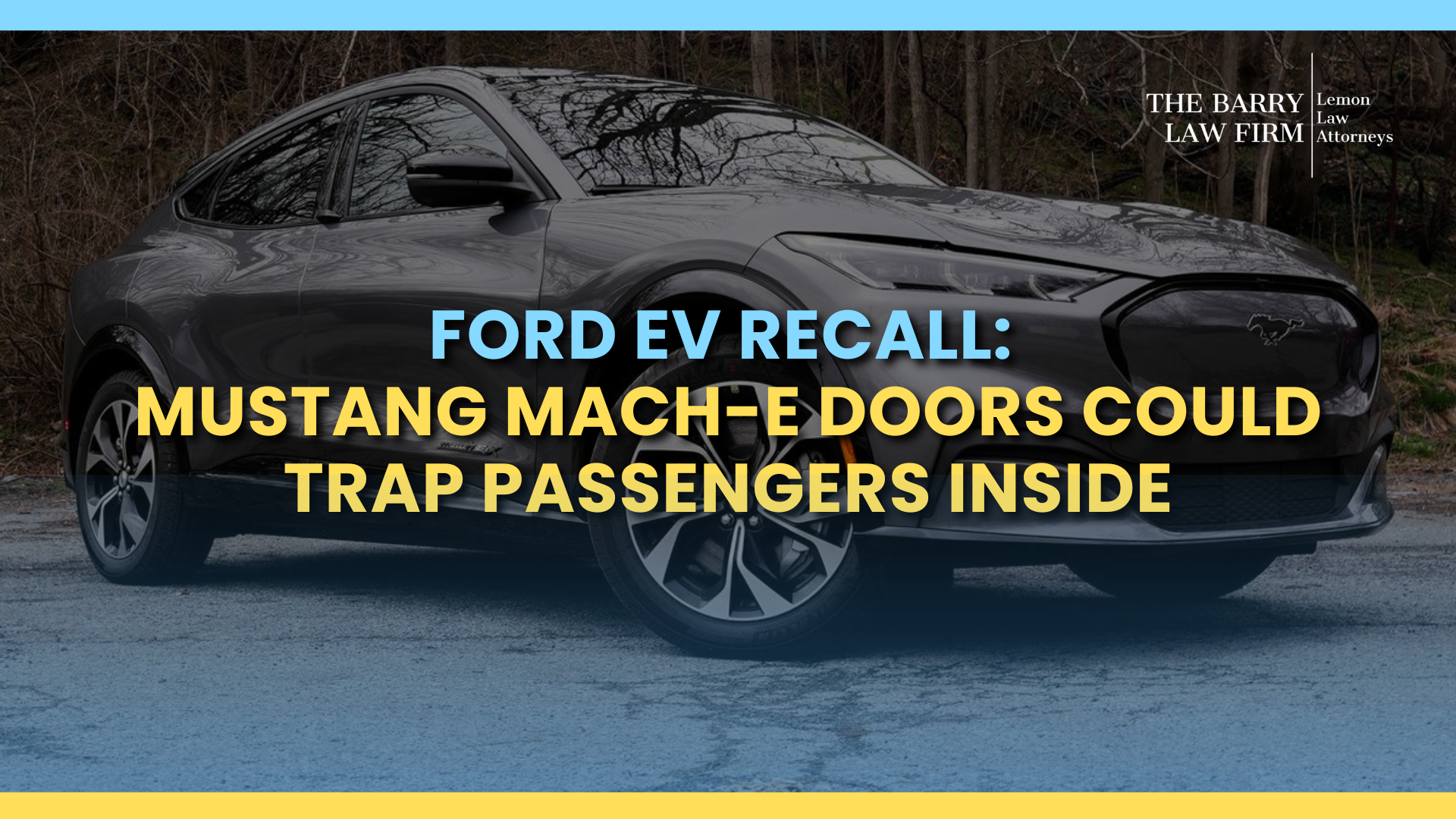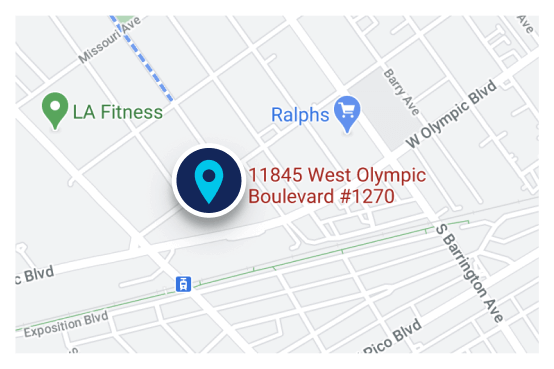
The safety of vehicles is one of the most critical considerations for drivers and passengers, especially when it comes to electric vehicles (EVs) that rely heavily on complex technology. Recently, Ford has announced a recall that directly affects its popular Mustang Mach-E, raising widespread concern among owners. Reports confirm that a software-related glitch could leave passengers trapped inside the vehicle or lock drivers out altogether, creating an alarming scenario. What might sound like an unlikely event has been officially acknowledged by Ford, highlighting the seriousness of the issue.
This problem is more than just an inconvenience; it is a safety hazard that could have severe consequences in real-world situations. Consider the risk if a child or pet were left in the car, and the doors failed to unlock. In such cases, minutes can matter, and the inability to exit or enter the vehicle could quickly become life-threatening. This kind of defect raises broader questions about how well automakers are testing these systems before releasing them to consumers.
The Mach-E has been one of Ford’s flagship EVs, meant to showcase innovation and appeal to the growing electric vehicle market. However, this recall puts a spotlight on the fact that even high-profile, technologically advanced vehicles are not immune to dangerous flaws. It also underscores the importance of ongoing oversight and accountability in the automotive industry. For consumers, this is a reminder to stay alert to recalls and take immediate action when safety concerns are identified.
As Ford begins its recall process, Mach-E owners will need to weigh their reliance on the vehicle against the potential dangers it poses. While Ford has expressed confidence in a software fix, it remains essential that drivers take this issue seriously and avoid ignoring recall notices. Safety should always come before convenience, and this situation is no exception.
The Cause of the Ford Mustang Mach-E’s Lock-Out Problem
At the center of this recall is the way Ford’s Mustang Mach-E manages its electrical systems. Like most EVs, the Mach-E relies on two separate batteries: a large, high-voltage traction battery that powers the motor and driving functions, and a smaller 12-volt battery that controls everyday essentials like lights, locks, and even starting the vehicle. The issue arises when the 12-volt system fails or drains in a way that compromises the ability to unlock doors.
In theory, the traction battery should provide backup power to recharge the smaller battery, preventing such failures. But striking the right balance between recharging the 12-volt and preserving the main battery is more complicated than it seems. If the system constantly tops off the 12-volt, it risks degrading it more quickly. If it doesn’t recharge often enough, the 12-volt may die unexpectedly. This delicate balance has already caused problems for other automakers, and now Ford is grappling with the same challenge.
The malfunction comes into play when the doors are locked and the 12-volt battery dies. In these cases, the doors can remain locked, and the usual methods of entry—like the key fob or interior unlock buttons—stop functioning. Ford has admitted this could leave drivers unable to reopen doors once they’ve been shut, creating a lock-out situation that could trap passengers inside. This not only presents a risk of entrapment but also highlights the vulnerabilities of systems that depend so heavily on electronics.
Even though Ford believes a software update could correct the problem, the incident shows how even small oversights can have significant consequences. It serves as a warning that as vehicles become more reliant on software and batteries, the smallest component failures can snowball into major safety issues. Until a reliable fix is in place, owners should treat the risk with caution.
Which Ford EVs Are Affected by the Recall?
Ford has announced that the recall will apply primarily to Mustang Mach-E vehicles produced between 2021 and 2025. This timeframe includes nearly every version of the Mach-E currently on the road, making the recall both broad in scope and urgent for many drivers. Although Ford has not yet detailed which specific trims or configurations are most at risk, the company has confirmed that all Mach-E owners should take precautions until the recall is fully carried out.
What makes the situation even more concerning is the uncertainty surrounding other Ford EVs. While Ford has so far limited its warnings to the Mach-E, there is speculation that the problem could extend to additional models like the F-150 Lightning. If the issue stems from the underlying system design rather than a model-specific glitch, then it may be only a matter of time before more recalls are announced. This uncertainty leaves many Ford EV owners anxiously waiting for clarity.
For affected drivers, Ford has promised that a software update will serve as the primary fix. However, software solutions can sometimes take time to roll out, leaving drivers in a vulnerable position in the meantime. It is not yet clear whether Ford will issue interim safety recommendations to reduce the risk of entrapment before the update is made available. Owners must remain vigilant and monitor communications from the company closely.
As of now, Ford has stated that it is not aware of any injuries tied to the defect, but the potential consequences are too severe to ignore. Trapped passengers in an emergency situation could face real danger, and waiting for the “what if” scenario to happen is not an acceptable strategy. For this reason, Ford owners should act quickly once they receive notification of the recall, ensuring their vehicle is repaired as soon as possible.
The Broader Safety Concerns Behind EV Recalls
This recall is part of a larger conversation about the risks and responsibilities tied to the rapid adoption of electric vehicles. EVs are often marketed as safer, cleaner, and more advanced alternatives to traditional vehicles, but as this case shows, they are far from immune to defects. In fact, the complexity of their systems introduces new types of risks that many consumers may not anticipate.
The issue with the Mustang Mach-E reveals how a small system—the 12-volt battery—can undermine the entire safety of a vehicle. Something as routine as locking or unlocking doors should not fail under normal conditions, yet because of the way EVs are wired, it has become a major hazard. This not only illustrates the fragility of certain EV systems but also raises questions about the thoroughness of testing before vehicles are released to the public.
For automakers, recalls like this underscore the need for accountability and transparency. Consumers trust that their vehicles will protect them, not expose them to new dangers. When defects are discovered, manufacturers have both a legal and ethical duty to act quickly, notify drivers, and provide free repairs. Without such diligence, the risks fall squarely on the shoulders of consumers, who may suffer harm through no fault of their own.
The Mach-E recall also serves as a reminder of the broader implications of defective vehicles on consumer confidence in EV technology. If problems like this continue to arise, drivers may hesitate to make the switch to electric, slowing the industry’s growth. It is essential for automakers to recognize that innovation must go hand in hand with safety and reliability if EVs are truly to be the future of transportation.
How The Barry Law Firm Can Help
At The Barry Law Firm, we specialize in helping California consumers take legal action against manufacturers when their vehicles fail to meet quality and safety standards. If your Ford Mustang Mach-E has been in the shop repeatedly for lock-out issues, electrical malfunctions, battery failures, or if a recall or repair attempt has not fixed the problem, you may be entitled to a refund, replacement, or cash compensation under California’s Lemon Law.
Lemon Law Expertise – We specialize in California Lemon Law cases and know how to hold manufacturers accountable.
No Upfront Costs – The California Lemon Law requires the manufacturer to pay our fees. That means, at The Barry Law Firm, we will never charge you, no matter the outcome of your case.
Proven Success – We have helped thousands of consumers obtain favorable settlements for their defective vehicles.
Personalized Attention – We handle all legal paperwork and negotiations so you don’t have to deal with the stress.
If Ford’s dealership or any software or repair measure hasn’t resolved your Mustang Mach-E lock-out or battery-related issue, you may have a case. Contact us to explore your options.
Conclusion
The Ford Mustang Mach-E recall is a powerful reminder that even the most advanced vehicles can have serious safety defects. While Ford has suggested that a software fix could resolve the problem, the fact that door locks could malfunction so severely raises pressing concerns. A vehicle should never put passengers at risk of being trapped inside, yet that is exactly the danger presented by this glitch.
For owners, the key takeaway is that recalls must never be ignored. Acting quickly and following Ford’s instructions is essential to protect yourself, your passengers, and anyone who may rely on your vehicle. With a defect of this nature, the risks are too great to put off repairs or updates. Even if no injuries have been reported so far, that does not minimize the urgency of addressing the problem.
More broadly, this situation highlights the importance of rigorous testing, consumer transparency, and manufacturer accountability. As EVs become more common, the auto industry must learn from recalls like this and ensure that safety is always the highest priority. For now, the responsibility lies with both Ford to provide a solution and consumers to remain vigilant.
At the same time, consumers should remember they have rights under California law if their vehicle’s defects persist. Legal protections exist to hold automakers accountable, and law firms like The Barry Law Firm stand ready to assist when recalls and repairs do not resolve the issue. Safety and reliability are non-negotiable, and no driver should settle for less.



